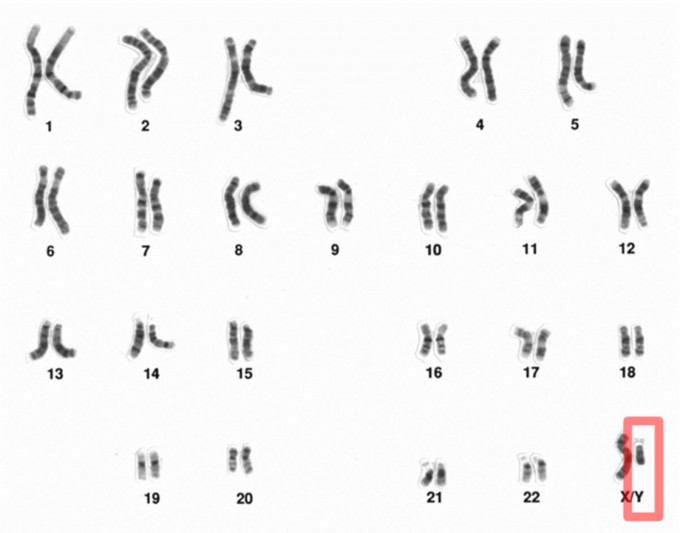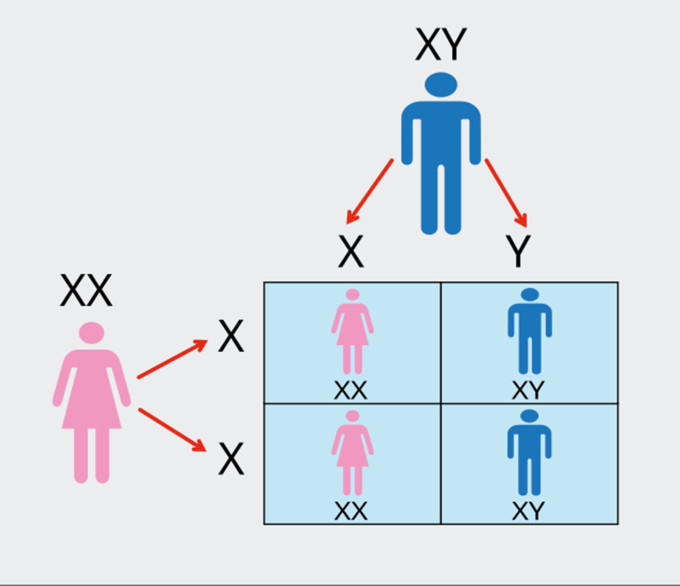Y chromosomes have started shrinking: Here’s what it means for men
Men, have you ever wondered what makes you, well, you? It’s your Y chromosome — the genetic key that unlocks all the male-specific traits. But here’s some news: it’s shrinking!
Scientists are scratching their heads over this. It’s like your favourite pair of jeans getting smaller and smaller with every wash — except that the time between each wash (or shrinkage) is millions of years.

While this gradual process raises concerns about its potential impact on male fertility and the future of human reproduction, experts believe there is no immediate cause for alarm.
Why is the Y chromosome shrinking?
Dr Mallikarjun Sakpal, Consultant at Aster Whitefield Hospital, Bengaluru, explains that humans have 23 pairs of chromosomes, 22 of which are autosomes, and one pair determines sex: XX for females and XY for males. However, the number of genes on the Y chromosome is gradually decreasing.
 Despite this, it will take millions of years for the Y chromosome to disappear entirely (Source: Wikimedia Commons)
Despite this, it will take millions of years for the Y chromosome to disappear entirely (Source: Wikimedia Commons)
The Y chromosome has been losing genes and reducing in size over millions of years. It is notably smaller than the X chromosome and contains fewer genes—approximately 50 to 200 compared to the 1,000 on the X. This reduction is partly due to limited recombination with the X chromosome, meaning the Y cannot repair genetic damage as effectively. Over time, mutations accumulate, and some genes are lost.
Evolutionary pressures that render some genes redundant have also contributed to its degradation.
No one knows for sure why this is happening, but it might be because the Y chromosome is kind of lonely. Unlike other chromosomes, it doesn’t have a buddy to swap genes with, as homologous chromosomes do, so it’s more prone to losing bits and pieces over time.
What does this mean for men?
Well, don’t panic just yet. The Y chromosome is still hanging in there, and it’s not going to disappear anytime soon. But it’s something to think about. Especially since Y chromosome is instrumental in the sex organs development of the male baby.
Despite this, it will take millions of years for the Y chromosome to disappear entirely, and other chromosomes could potentially take over its role, said Dr (Col) Sandeep Karunakaran, Senior Consultant at Apollo Fertility, Hyderabad.
Both Drs Karunakaran and Sakpal stress that while the shrinkage may eventually affect male fertility by reducing the number of critical genes involved in reproduction, this process is so gradual that it doesn’t pose an immediate threat.
Additionally, humans have mechanisms to compensate for gene loss on the Y chromosome, ensuring that reproductive capabilities remain largely unaffected for the foreseeable future.
 Even though the Y chromosome is shrinking, experts like Dr Sakpal believe that its function could potentially be taken over by other chromosomes in the distant future. (Source: Wikimedia Commons)
Even though the Y chromosome is shrinking, experts like Dr Sakpal believe that its function could potentially be taken over by other chromosomes in the distant future. (Source: Wikimedia Commons)
Can lifestyle modifications halt these changes?
Although the Y chromosome plays a crucial role in spermatogenesis and the development of male traits, the reduction in its size does not currently impact male fertility in a significant way.
Dr Karunakaran emphasises that despite concerns about the Y chromosome’s future, lifestyle adjustments, while beneficial for overall health, are insufficient to halt this evolutionary process. Genetic research, however, may provide solutions in the future to mitigate its effects on fertility.
What does this mean in an evolutionary perspective?
Even though the Y chromosome is shrinking, experts like Dr Sakpal believe that its function could potentially be taken over by other chromosomes in the distant future.
A recent study published in the Proceedings of the National Academy of Sciences has uncovered a fascinating evolutionary development in the spiny rat. As this Japanese rodent species lost its Y chromosome, it evolved a new gene to determine sex.
Evolutionary history also shows that some species that have already lost their Y chromosome, developed alternative methods for sex determination. It is possible that human biology could follow a similar path.
Despite the ongoing shrinkage, experts agree that the disappearance of the Y chromosome is a long-term possibility and not a short-term concern.
DISCLAIMER: This article is based on information from the public domain and/or the experts we spoke to. Always consult your health practitioner before starting any routine.
📣 For more lifestyle news, click here to join our WhatsApp Channel and also follow us on Instagram
Disclaimer: The copyright of this article belongs to the original author. Reposting this article is solely for the purpose of information dissemination and does not constitute any investment advice. If there is any infringement, please contact us immediately. We will make corrections or deletions as necessary. Thank you.
